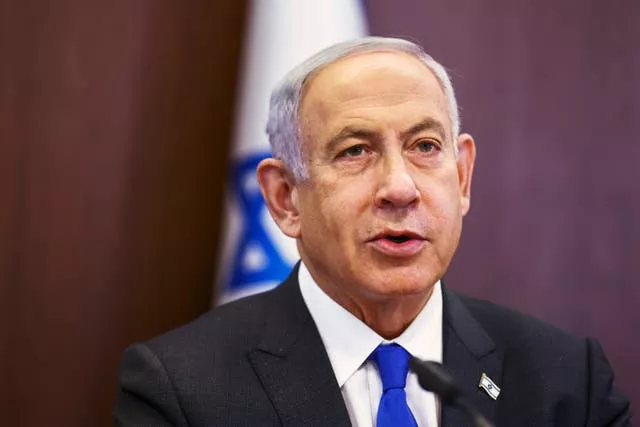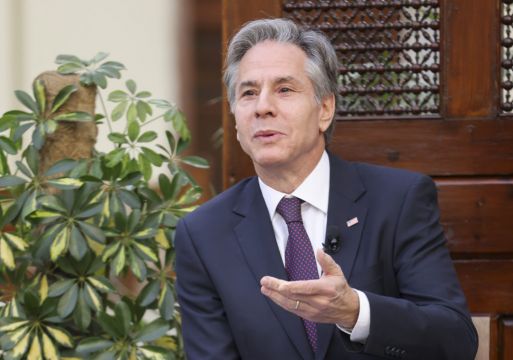An alarming spike in Israeli-Palestinian violence and sharp responses by both sides are testing the Biden administration as US secretary of state Antony Blinken visits Israel and the West Bank this week.
What had already been expected to be a trip fraught with tension over differences between the administration and Israeli Prime Minister Benjamin Netanyahu’s new far-right government has grown significantly more complicated over the past four days with a spate of deadly incidents.
Mr Blinken’s high-wire diplomatic act begins on Monday after he completes a brief visit to Egypt that has been almost entirely overshadowed by the deteriorating security situation in Israel and the West Bank.
US officials say the main theme of Mr Blinken’s conversations with Mr Netanyahu and Palestinian leader Mahmoud Abbas will be “de-escalation”.

Yet Mr Blinken will arrive in Israel just a day after Mr Netanyahu’s Security Cabinet announced a series of punitive measures against Palestinians in response to a weekend of deadly shootings in which Palestinian attackers killed seven Israelis and wounded five others in Jerusalem.
Those shootings followed a deadly Israeli raid in the West Bank on Thursday that killed 10 Palestinians, most of them militants.
The violence has made January one of the bloodiest months in the occupied West Bank and east Jerusalem in several years.
While Mr Blinken’s trip has been planned for several weeks and will follow visits by President Joe Biden’s national security adviser Jake Sullivan and CIA director Willian Burns, it will be the highest-level US engagement with Mr Netanyahu since he retook power last month and the first since the surge in violence.
Already contending with the new Israeli government’s far-right policies and its opposition to a two-state resolution to the long-running conflict, US officials have yet to weigh in on the retaliatory steps that include sealing and demolishing the homes of Palestinian attackers, cancelling social security benefits for their families and handing out more weapons to Israeli civilians.
Perhaps most alarming was Mr Netanyahu’s vague promise to “strengthen” Israel’s West Bank settlements, built on occupied land the Palestinians claim as the heartland of a future state.
Bezalel Smotrich, an ultranationalist Cabinet minister whom Mr Netanyahu has placed in charge of settlement policy, said he would seek new construction in a strategic section of the West Bank called E1. The US has repeatedly blocked previous attempts by Israel to develop the area.

US officials have, however, criticised Mr Abbas’ decision to suspend Palestinian security cooperation with Israel in the wake of the West Bank raid.
“We want to get the parties to not cease security cooperation but to really enhance the security coordination,” said Barbara Leaf, the top US diplomat for the Middle East.
“We are urging de-escalation and a calming of the situation.”
Ahead of his meeting with Mr Blinken, Mr Netanyahu said on Sunday that Israel’s response is not intended to exacerbate tensions.
“We are not seeking an escalation, but we are prepared for any scenario,” Mr Netanyahu told a Cabinet meeting. “Our answer to terrorism is a heavy hand and a strong, swift and precise response.”
The Palestinians and some human rights groups believe the Israeli retaliation, including the demolition of homes of attackers’ families, amounts to collective punishment and is illegal under international law.
The turmoil has added yet another item to Mr Blinken’s lengthy diplomatic agenda that was already set to include Russia’s war on Ukraine, tensions with Iran and crises in Lebanon and Syria; all of which weigh heavily in the US-Israel relationship.







